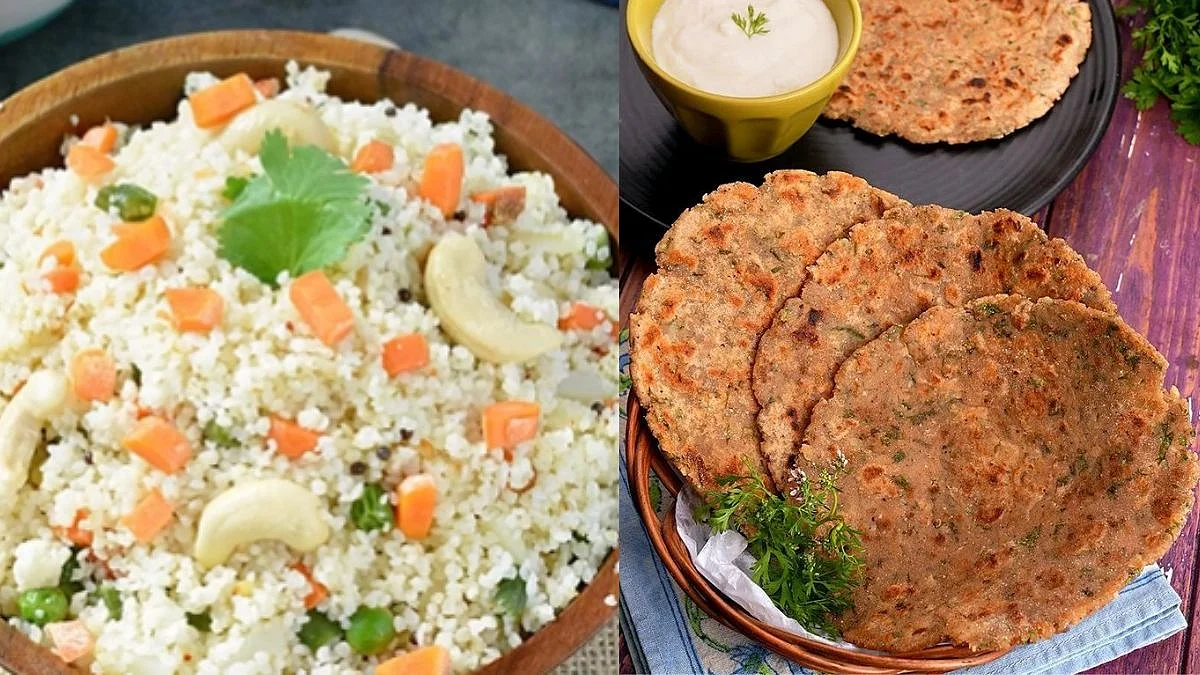Copyright freepressjournal

HomeLifestyleExperts Advise Indians To Reduce Carbohydrate Intake By 5% And Increase Protein To Lower Diabetes And Heart Risks Experts Advise Indians To Reduce Carbohydrate Intake By 5% And Increase Protein To Lower Diabetes And Heart Risks `Rice and chapatis are not villians...but need is to hike protein intake' Amit SrivastavaUpdated: Friday, October 31, 2025, 03:48 PM IST Should Indians stop eating rice and chapati which form their staple diet and which they have been consuming since centuries? Experts contacted by the FPJ said that is not necessary. | FPJ Mumbai: Should Indians stop eating rice and chapati which form their staple diet and which they have been consuming since centuries? Experts contacted by the FPJ said that is not necessary. But Indians should replace at least five per cent of carbohydrates with protiens if they are to reduce the risk of diseases like type 2 diabetes, cardio vascular diseases and stroke. The FPJ spoke to the experts in the background of a recent study by ICMR-INDIAB which revealed that Indians are heavy consumers of carbohydrates, with nearly 62% of daily calories coming from carbs. Experts warn that this carb-heavy diet can negatively affect metabolic health, contributing to obesity and increasing the risk of type 2 diabetes, cardiovascular disease, and strokes. What is particularly concerning is that most of these carbohydrates come from low-quality sources such as white rice, milled whole grains, and added sugar. Geographically, white rice dominates the South, East, and Northeast, while wheat is the staple in North and Central India. The study also found that at least 21 states exceed the recommended sugar intake, raising further health concerns. Despite these findings, experts clarify that extreme low-carb diets are not the solution. “We are not recommending removing rice or rotis from the plate. Even reducing just 5% of carbohydrate intake can significantly lower the risk of developing diabetes and pre-diabetes,” said the study authors. “Small changes on the plate can make every meal healthier without compromising the joy of eating.” Maharashtra Kesari Wrestler Sikandar Shaikh Arrested In Arms Supply Racket: Reports Mumbai News: BMC To Provide 512 New Houses For Sanitation Workers By December 2025 Under Ashray Yojana Mumbai Tragedy: 30-Year-Old Technical Supervisor Dies After 25-Foot Fall At Chhatrapati Shivaji Maharaj International Airport Mumbai News: BMC Chief Bhushan Gagrani Orders Vigilance, Timely Completion Of Preparations For Dr Babasaheb Ambedkar’s Mahaparinirvan Diwas Highlighting the dietary imbalance, Mumbai-based Bariatric and Laparoscopic Surgeon Dr. Aparna Govil Bhasker explained that India’s traditional diet is high in carbohydrates but low in protein. “A large part of the Indian plate still consists of white rice, chapati, or other starchy foods like potatoes, while protein-rich foods such as pulses, eggs, fish, or dairy are often limited or skipped. This imbalance causes frequent blood sugar spikes and makes it harder for the body to manage weight and insulin levels efficiently,” she said. Dr. Bhasker also stressed that small dietary changes can have a big impact. “Even replacing 5% of daily carbs with protein can reduce the risk of obesity and diabetes. Protein helps build muscle, supports metabolism, and provides a sense of fullness, which naturally reduces overeating and aids in weight management,” she added. Commenting on the broader implications of the study, Dr. Tehseen Siddiqui, Chief Dietician at Saifee Hospital, Mumbai, said that the findings highlight a long-overdue discussion about Indian diets. “This is not about eliminating traditional foods. It’s about rethinking proportions and restoring balance. A small shift toward more protein is one of the simplest and most effective strategies for public health,” he explained. He noted that sedentary lifestyles and easy access to processed foods have made refined carbohydrates the default choice. Zepto Crowned Mumbai’s No. 1 Startup, Snabbit Rises To 7th In LinkedIn 2025 Rankings Focusing on metabolic consequences, Dr. Pranav Ghody, Consultant Endocrinologist and Diabetologist at Wockhardt Hospitals, Mumbai Central, pointed out that frequent consumption of polished rice, refined flour, and starchy foods leads to insulin spikes, overeating, and weight gain. “Replacing a small portion of rice or roti with paneer, sprouts, tofu, or eggs stabilizes blood sugar, promotes fat loss, and preserves lean muscle. Over time, these small changes improve metabolic health and reduce the risk of type 2 diabetes,” he said. Concluding with practical advice, Dr. Siddiqui recommended, “Upgrade your diet by swapping white rice for brown rice, millets, or quinoa to boost fiber and nutrients. Include pulses and legumes like dals, chana, rajma, or sprouts in meals, and opt for protein-rich breakfasts such as eggs, paneer bhurji, or yogurt with nuts and seeds. Choose healthier snacks like a handful of nuts or a glass of buttermilk instead of processed options.” The study underscores that balanced meals with moderate carbohydrate intake and sufficient protein can help Indians enjoy traditional cuisines while safeguarding health. To get details on exclusive and budget-friendly property deals in Mumbai & surrounding regions, do visit: https://budgetproperties.in/ Follow us on RECENT STORIES Experts Advise Indians To Reduce Carbohydrate Intake By 5% And Increase Protein To Lower Diabetes... #StopThePeriodPain: Multi-Channel Campaign Sparks National Conversation On Menstrual Pain Awareness Enrique Iglesias Mumbai Concert Felt More 'Millennial Approved' Than Gen Z 'Give Your Money Away Shorties': Singer Billie Eilish Boldly Asks Billionaires To Step Up; Mark... On World Vegan Day, Try These 5 Vegan-Friendly Restaurants In Mumbai



